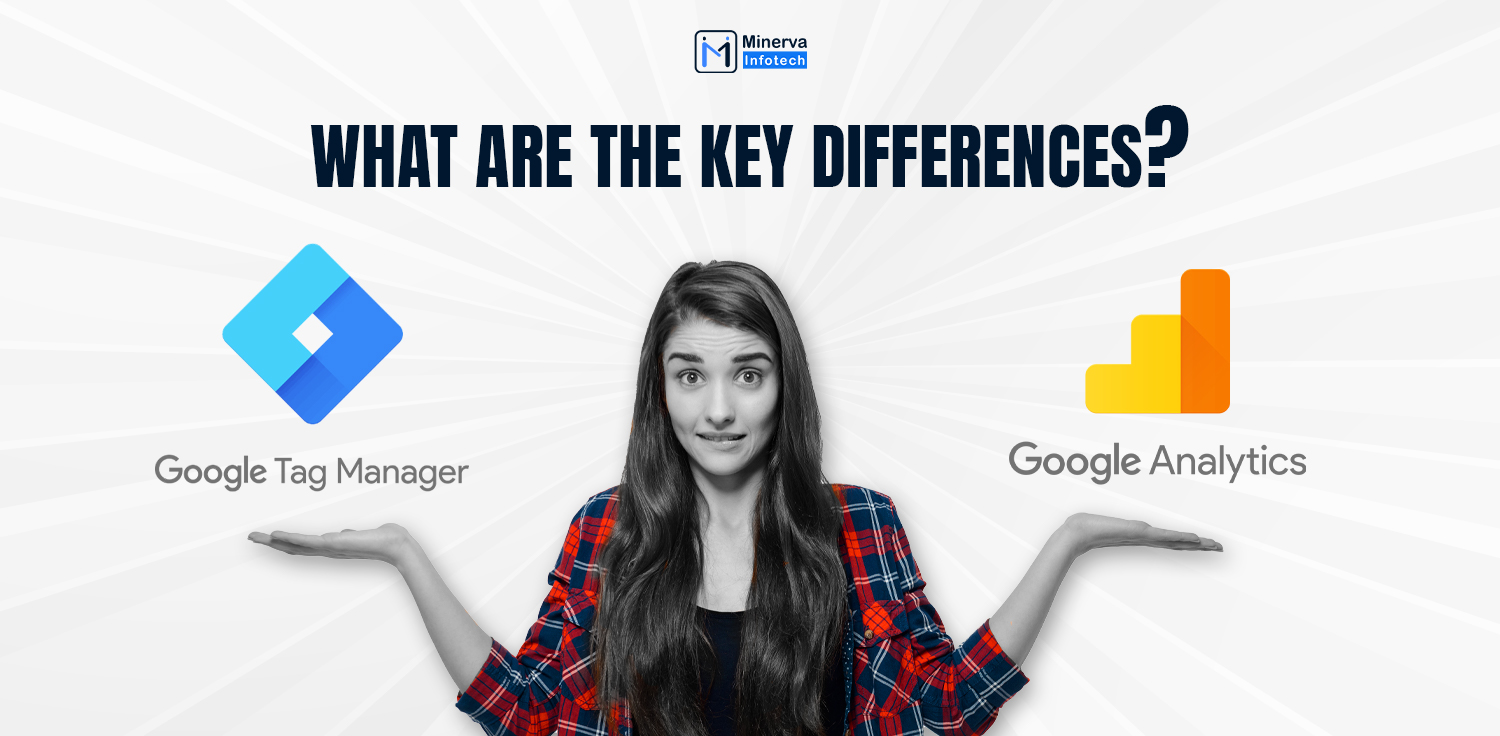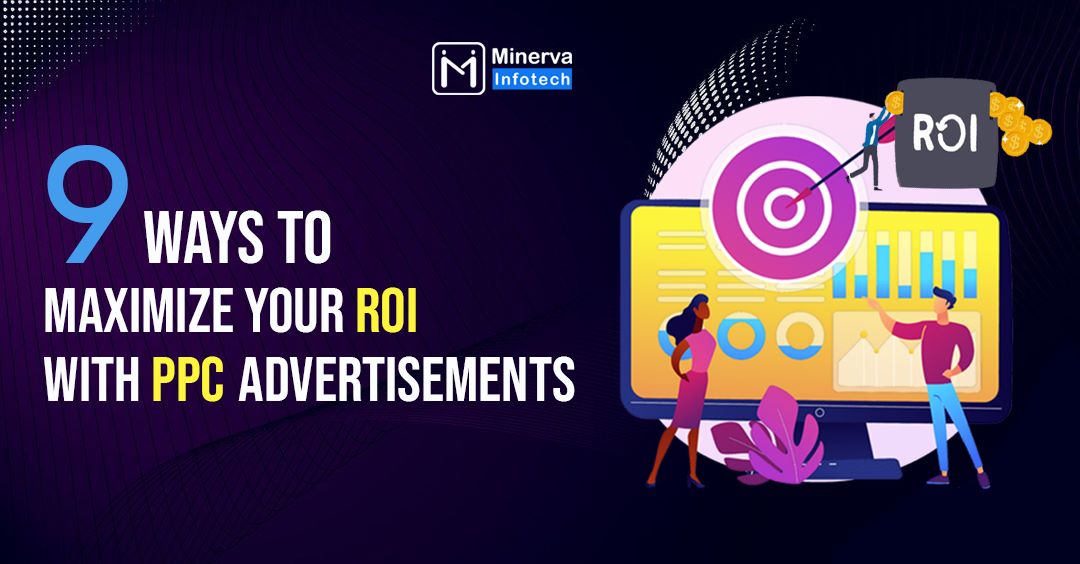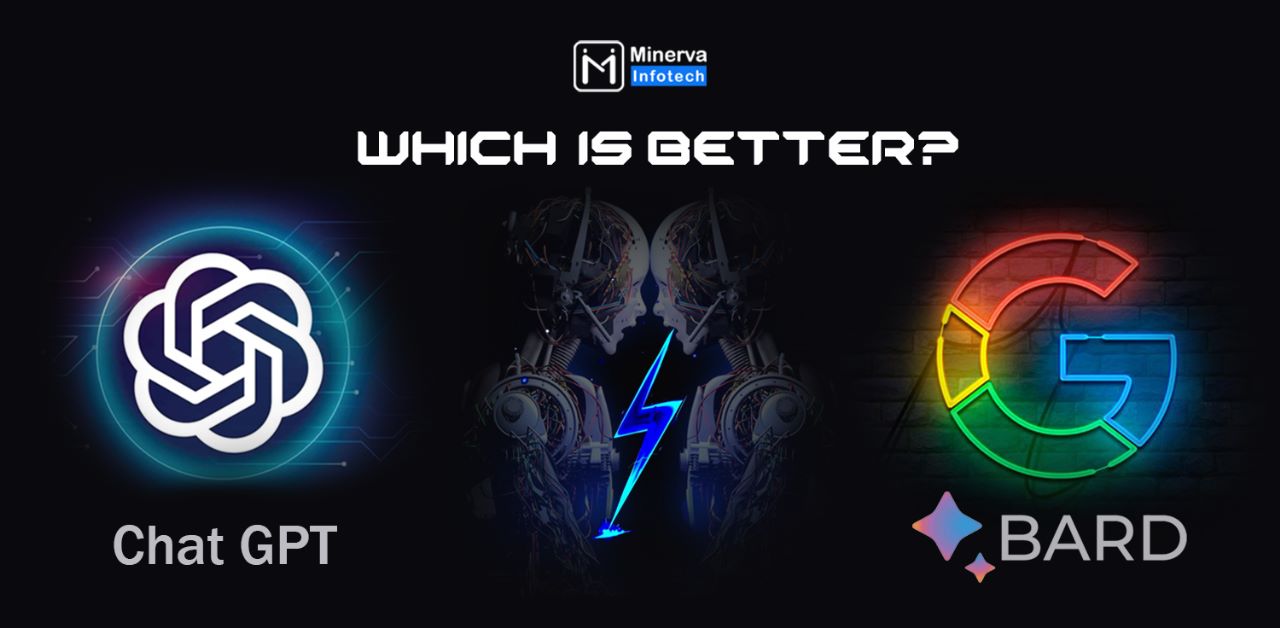Last Updated on April 7, 2023 by Minerva
Google Tag Manager VS Google Analytics: Which is better? It’s a tricky question – they’re both excellent marketing tools!
According to stats over 80% of websites use Google Analytics (GA) to discover more about their visitors, while 99% use Google Tag Manager (GTM) .These numbers indicate how effective both of these digital technologies are.
Here’s an overview of what we’ll cover in this guide:
Table of Contents
What Is Google Analytics?
Google Analytics is a web analytics tool that provides information and insights on how well websites, apps, and other digital properties are performing.
It helps website owners and marketers track and analyze various metrics related to user engagement, behavior, and conversions on their websites.
It offers a wide range of features and functions, such as real-time reporting, audience segmentation, goal monitoring, ecommerce tracking, multi-channel attribution, and customized reporting.
It also offers data visualization options, such as dashboards, reports, and data export capabilities, to help users interpret and understand their website data.
What Is Google Tag Manager?
Google Tag Manager is a free tag management system provided by Google which allows website owners and marketers to smoothly manage and deploy tracking codes and other code snippets on their websites or applications without having to manually edit the site’s source code.
It comes with a user-friendly interface that makes it easy to add, update, and manage tracking tags for several marketing and analytics tools such as Google Analytics, Google Ads, Facebook Pixel, and many more.
With Google Tag Manager, users can set up and configure tracking tags using a web-based interface, without needing to have technical coding skills.
Google Tag Manager also offers features such as versioning and publishing, testing and debugging tools, access controls, and built-in error checking, which help ensure that tracking tags are implemented correctly and are functioning as intended.
Is Google Tag Manager Different From Google Analytics?
Yes, Google Tag Manager (GTM) and Google Analytics (GA) are two different tools provided by Google for handling and analyzing website data.
Google Tag Manager is a tool for managing tracking tags, including the tracking code for Google Analytics, while Google Analytics is a tool for analyzing website data and generating insights from the collected data.
Google Tag Manager VS Google Analytics – What Are The Key Differences?
The two tools that are arguably mixed up most often are Google Tag Manager (GTM) and Google Analytics.
Google Tag Manager VS Google Analytics- Let’s explore the 8 key differences –
Reports On Website Traffic
Google Analytics is a web analytics tool that generates thorough reports on website traffic, including information like pageviews, sessions, bounce rate, and more.
It provides detailed insights on user behavior and website performance.
Google Tag Manager, on the other hand, is a tag management system that allows you to implement and manage tracking codes and other tags on your website, but it does not provide extensive information on website traffic.
Its primary focus is on tag management and event triggering based on user interactions.
Data Source
Google Analytics collects data directly from the website or app through a tracking code that is implemented on the site or app.
It tracks user interactions and provides data on user behavior, demographics, and other website-related metrics.
The Google Tag Manager, on the other hand, is a tool for managing and deploying tags, which are little pieces of code that gather data and send it to external tools like Google Analytics or other marketing and analytics platforms.
Container Tag
Google Analytics, uses a single tracking code that is implemented on every page of a website to collect data.
Google Tag Manager on the other hand uses container tags, which are small snippets of code that are implemented on a website or app to manage and deploy other tags.
Container tags are placed on every page of a website and act as a container for other tags, which are then added and managed through the Google Tag Manager interface.
Storage Or Analysis Of Data
Google Analytics stores data on Google servers and provides comprehensive analysis tools for interpreting and visualizing the data.
It offers features such as data segmentation, custom reports, and data export options.
Google Tag Manager, on the other hand, does not store data. It only manages and deploys tags, which then send data to other analytics tools for storage and analysis.
Querry Data
Google Analytics provides a robust querying and data analysis interface that allows users to query and analyze data within the tool.
It offers advanced filtering, segmentation, and custom report features.
Google Tag Manager, on the other hand, does not provide query data capabilities as it primarily focuses on managing and deploying tags.
Independency
Google Analytics is an independent web analytics tool that can be used on its own to collect, analyze, and report on website data.
In contrast, Google Tag Manager is a tool that manages and deploys tags when connected with other analytics and marketing platforms, like Google Analytics, Google Ads, and others..
Usefulness
Google Analytics is essential for businesses and website owners who want comprehensive insights into their website performance and user behavior.
It provides in-depth reporting, data analysis, and data visualization capabilities.
Google Tag Manager, on the other hand, is helpful for managing and deploying tags that can be used to track user interactions, events, and other marketing activity on a website or app.
User Access
Google Analytics allows multiple users to have access to an account with different levels of permissions, such as view-only, edit, and administrative access.
User access can be managed through the Google Analytics interface.
Google Tag Manager also allows multiple users to have access to an account with different levels of permissions, but the access is primarily for managing tags and not for data analysis or reporting.
Why Marketers Confuse Google Analytics With Google Tag Manager?
Marketers may confuse Google Analytics with Google Tag Manager due to various reasons.
One common reason is the technical jargon and terminologies used in both tools, which can be unfamiliar and confusing for marketers who are not well-versed in web analytics or digital marketing.
Additionally, the overlapping features of both tools, such as tracking user interactions and implementing tags, can further contribute to confusion.
Misunderstandings about the precise roles and functionalities of Google Tag Manager and Google Analytics might also result from their interconnection and the frequent use of both tools together.
Furthermore, the similar interface and continuous updates and changes to both tools can add to the confusion.
Lack of familiarity or proper training on the distinct functionalities of each tool may also be a factor.
To avoid confusion, marketers should strive to understand the unique functionalities and use cases of each tool and seek proper training and support from reliable sources.
Also Read – The Science Of Using Rhymes In Advertising By Famous Brands
Conclusion
Google Tag Manager VS Google Analytics Which one should you use?
Both are powerful tools that can be used together to improve website data tracking and analysis.
While Google Analytics provides detailed insights and reports on website traffic and user behavior, Google Tag Manager acts as a middleman between the website and tracking tools like Google Analytics, allowing for easier implementation and management of various tags.
Whether it’s installing Google Analytics tracking code directly on the website or using Google Tag Manager to implement multiple tags, it’s important to choose one implementation method and avoid using both simultaneously to prevent any conflicting data.
If you haven’t already, consider incorporating both Google Tag Manager and Google Analytics into your digital marketing strategy to unlock their full potential.
Start now and make use of these free tools to improve the functionality and business outcomes of your website!
Looking For A Result Driven Digital Marketing Agency?

At Minerva Infotech we specialize in 360 Digital Marketing solutions to businesses around the globe. We create a tailored digital strategy that will help you boost your ROI and stand out in the digital world with over 15 years of industry expertise and a proven track record of serving 250+ clients across 19+ countries.









